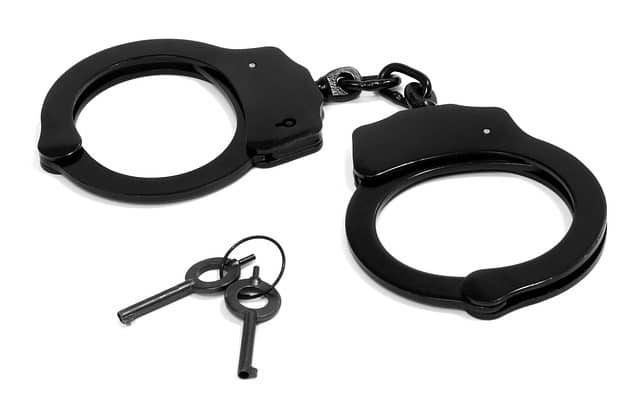New York offers a variety of associate degree programs in criminal justice, catering to students interested in law enforcement and legal careers. These programs are designed to provide foundational knowledge and skills necessary for success in various roles within the criminal justice system.
With institutions like BMCC, St. John’s University, and Monroe University at the forefront, students have access to quality education and resources that can significantly enhance their career prospects.
Table of Contents
What are the requirements for New York associate degree programs in criminal justice?
To enroll in a New York associate degree program in criminal justice, students typically need to meet specific academic prerequisites. Most programs require a high school diploma or an equivalent qualification, such as a GED.
Additionally, prospective students may need to submit standardized test scores, like the SAT or ACT. Some institutions may have their own placement tests to assess students’ readiness for college-level coursework.
Aside from academic qualifications, students should also be prepared for background checks, especially if they plan to enter law enforcement. This is crucial for maintaining safety and integrity within the field.
How can I enroll in an associate degree in criminal justice in New York?
Enrolling in a New York associate degree in criminal justice involves several steps. First, students should research programs that align with their career goals and interests. Affordable New York associate degree programs in criminal justice can often be found at community colleges.
Once they identify suitable programs, the next step is to complete an application, which typically includes submitting transcripts and test scores. Many schools offer online applications for convenience.
It’s also advisable for students to visit the campus or attend informational sessions. This provides insight into the program structure and available resources, allowing students to make informed decisions.
What is the curriculum like for a criminal justice associate degree?
The curriculum for an associate degree in criminal justice in New York is comprehensive and covers a variety of essential topics. Core courses often include subjects such as criminal law, ethics in justice, and criminology.
Students also benefit from practical training experiences and internships, which enhance their understanding of real-world applications. Many programs incorporate law enforcement training to prepare students for careers in policing or other areas of justice.
- Criminal Justice System Overview
- Theories of Crime
- Community Relations and Policing
- Investigative Techniques
Advanced courses may delve into specialized areas such as cybercrime, juvenile justice, and corrections, providing students with a well-rounded education that caters to diverse interests within the field.
What career opportunities are available with a criminal justice associate degree in New York?
Graduates of criminal justice associate degree programs in New York have access to a wide range of career opportunities. Common roles include positions in law enforcement, corrections, and community service.
Students can pursue positions such as police officers, probation officers, and social services caseworkers. Career opportunities in criminal justice often lead to advancement into more specialized roles with additional education or experience.
Moreover, many institutions provide job placement services for graduates. These resources are invaluable as they help students connect with potential employers and navigate the job market.
What are the best criminal justice schools in New York?
New York is home to several top-ranked institutions offering criminal justice programs. BMCC is renowned for its strong community connections and affordable tuition rates, making it an excellent choice for many students.
St. John’s University offers a robust program with a focus on practical training and internships, providing students with valuable real-world experience.
Another notable institution is John Jay College, known for its specialized programs and extensive resources for students pursuing careers in criminal justice.
- BMCC
- St. John’s University
- Monroe University
- John Jay College
How does the transfer process work for criminal justice programs in New York?
Transferring to a criminal justice program in New York can be a smooth process, especially for students coming from community colleges. Many institutions have guaranteed transfer agreements that facilitate the transition to bachelor’s degree programs.
Students should ensure that they maintain a strong academic record and complete all necessary coursework to be eligible for transfer credits. It’s essential to communicate with academic advisors at both the current and prospective institutions.
Additionally, students should prepare to provide transcripts and possibly letters of recommendation during the transfer application process.
What financial aid options are available for criminal justice students in New York?
Financial aid is crucial for many students pursuing a criminal justice associate degree. New York offers various options, including federal and state grants, scholarships, and work-study programs.
Students can apply for financial aid through the FAFSA (Free Application for Federal Student Aid), which determines eligibility for federal loans and grants. Many institutions also provide institutional scholarships specifically for criminal justice majors.
Moreover, community colleges often have lower tuition rates, making them an affordable option for students seeking to enter the field without incurring significant debt.
Related questions about New York associate degree programs in criminal justice
What degree is best for criminal justice?
The best degree for criminal justice depends on individual career goals. An associate degree is a solid starting point for entry-level positions, while a bachelor’s degree may be necessary for advanced roles such as special agents or detectives. It’s essential to assess personal aspirations and the job market.
Does New York University offer criminal justice?
Yes, New York University offers programs related to criminal justice. Their curriculum focuses on social sciences and includes courses relevant to justice and public safety, providing a comprehensive education for those interested in the field.
Does BMCC have a criminal justice program?
BMCC indeed has a well-regarded criminal justice program. It emphasizes practical experience through internships and community service, preparing students for various roles within the justice system.
Does Ivy Tech have criminal justice classes?
Ivy Tech does offer criminal justice classes as part of their curriculum. These courses provide foundational knowledge and skills necessary for students looking to pursue a career in the criminal justice field.









